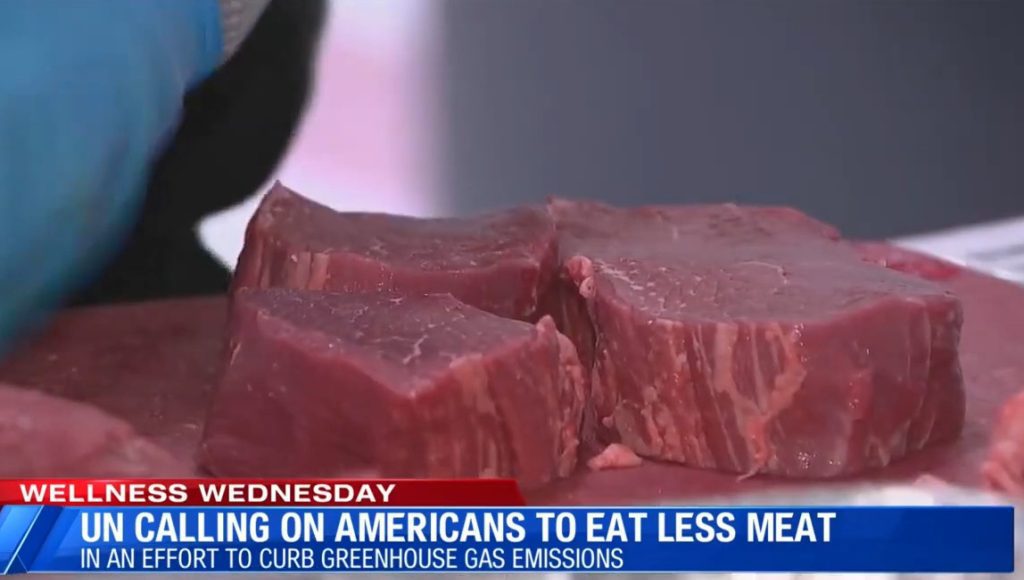As the United Nations (UN) prepares to admonish Americans and the world for their carnivorous appetites, one can’t help but notice the pungent scent of hypocrisy in the air. For years, the UN has been vocal about the global need for reduced meat consumption to combat climate change. However, as a new groundbreaking report to this effect looms in the horizon, the organization seems to be feeding on its advocation. There’s an insistent discord between the United Nations’ preachings and its actions, and this discord demands your immediate attention.
"The ongoing United Nations COP28 climate summit in Dubai is offering a wide variety of gourmet food options from vendors who serve beef, even as it prepares a report that is expected to call for the West to reduce consumption of beef." https://t.co/q0kTQsvi5s
— Peter Schweizer (@peterschweizer) December 8, 2023
The UN is expected to issue a clarion call for a massive reduction in meat eating habits in the US and beyond. They argue the livestock industry is responsible for significant greenhouse gas emissions, and cutting back will reduce ecological harm. However, local cattle producers like those interviewed by Fox affiliate WFXR argue this move doesn’t just affect them; it will have a far-reaching ripple effect across US farming communities. Given that federal data shows only 1.4 percent of global greenhouse gas emissions are due to American meat consumption, we are led to question the accuracy of the UN’s stance.
Further exemplifying this divergence between advocacy and action, meat could be seen in abundance at the UN’s recent COP28 climate meeting. A variety of meat-packed options from popular eateries such as The Hungry Hub, Philly Jawn by Ghostburger, Swaggers, and Mattar Farm Live Cooking were proudly advertised. This seeming endorsement of meat consumption contrasts sharply with the anticipated first-ever global food systems road map by the Food and Agriculture Organization. This road map will recommend countries across the globe, especially those known for high meat content in their diets like the US, to eat less meat.
The UN’s Food and Agriculture Organization insists on the necessity of this innovative blueprint to transform global agrifood systems for the better. According to them, this strategic tool will help address food security and nutrition challenges, while simultaneously mitigating climate change by preventing breach of the 1.5 degrees threshold. However, the wide array of meat dishes on the UN’s COP28 menu suggests a contradiction in their policies.
The UN’s persistent call for reduced meat consumption emanates from their website and blog where they write extensively on the link between meat consumption and climate change. They urge for diets richer in vegetables, fruits, whole grains, legumes, nuts, and seeds, and poorer in meat and dairy, arguing the latter contribute heavily to greenhouse emissions while also being resource-intensive.
In glaring contrast to these calls, the UN’s COP28 climate conference served up a varied menu of carnivorous delights, leading to significant criticism from opponents. Rep. Mike Flood (R-NE), a member of the Congressional Beef Caucus, singled out the glaring hypocrisy of the global elites, accusing them of promoting a radical green agenda while serving up meat dishes at their climate conference.
In summary, the glaring inconsistency in the United Nations’ rhetoric and enactment on the issue of meat consumption paints a picture of deep-seated hypocrisy. The question that arises now is to what extent this inconsistency will impact the credibility of the forthcoming report and the United Nations’ future advocacy in the name of climate change. The challenge and invitation to CURB meat consumption is noble and well-intended. However, if the UN expects others to adopt these changes, perhaps it’s high time they lead the way. As the famous saying asserts, actions speak louder than words or, in this case, more resoundingly than meat-rich menus.



